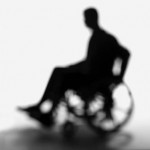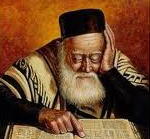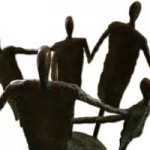Understanding Disability
 Disability is part of everyone’s life. Most families experience disabilities or ongoing conditions that result from birth or genetic anomalies, age, trauma, biochemical imbalances, disease, or other causes. Yet, many pretend that these challenges only happen in ‘other’ households, not in ‘ours.’ This perpetuates stigma. As a result, we and our families have often felt isolated or misunderstood. If we disclose our weaknesses, assumptions are made, and our lots for marriage partners become often unnecessarily restricted, for example. Disability, therefore, is as much of a social condition as it is a physiological one.
Disability is part of everyone’s life. Most families experience disabilities or ongoing conditions that result from birth or genetic anomalies, age, trauma, biochemical imbalances, disease, or other causes. Yet, many pretend that these challenges only happen in ‘other’ households, not in ‘ours.’ This perpetuates stigma. As a result, we and our families have often felt isolated or misunderstood. If we disclose our weaknesses, assumptions are made, and our lots for marriage partners become often unnecessarily restricted, for example. Disability, therefore, is as much of a social condition as it is a physiological one.
 Like everyone else, people with obvious or hidden disabilities or health conditions want others to know us through our interests, talents, character traits, feelings, beauty, and aspirations. The sage HIllel taught “Do not subject your friend to judgment until you have arrived at his place.” (Pirkei Avos, Ethics of the Fathers, 2, 4.) Relying exclusively on professionals and books to learn about us is like relying exclusively on books and teachers to learn about living in different cultures.
Like everyone else, people with obvious or hidden disabilities or health conditions want others to know us through our interests, talents, character traits, feelings, beauty, and aspirations. The sage HIllel taught “Do not subject your friend to judgment until you have arrived at his place.” (Pirkei Avos, Ethics of the Fathers, 2, 4.) Relying exclusively on professionals and books to learn about us is like relying exclusively on books and teachers to learn about living in different cultures.
We, ourselves, are eager to show you how we lead meaningful and productive lives, using services, tools, equipment, social or scheduling arrangements, and accessible building designs. You will come to understand that stereotypical assumptions, low expectations, and communication and physical barriers bring us equal or greater tzaar (distress) than do our actual disabilities. Conversations and shared experiences between us and you lead to relationships based on mutual respect and honest curiosity.
 For more information about specific disabilities or health conditions, how they may affect individuals and our families, and what you can do to help us feel more welcome in your community, contact us at info@yadempowers.org and type “About Disabilities” in the subject line or call 646-723-6936. Our speakers (most of whom have disabilities) welcome the opportunity to present informative workshops to your synagogue, organization, yeshiva or day school, or business.
For more information about specific disabilities or health conditions, how they may affect individuals and our families, and what you can do to help us feel more welcome in your community, contact us at info@yadempowers.org and type “About Disabilities” in the subject line or call 646-723-6936. Our speakers (most of whom have disabilities) welcome the opportunity to present informative workshops to your synagogue, organization, yeshiva or day school, or business.
Torah Perspectives
“Each human being is obligated to say: For my sake, the world was created.” (Mishnah Sanhedrin 4:5)
 Whatever are our lots or challenges in life, each of us is here for a reason. We are taught that we are in this world, because each one of us can do something important in a way that no other person can. Otherwise G-d wouldn’t have created us.
Whatever are our lots or challenges in life, each of us is here for a reason. We are taught that we are in this world, because each one of us can do something important in a way that no other person can. Otherwise G-d wouldn’t have created us.
 Major Torah figures, such as Yitzchak and Moshe Rabbeinu (our teacher), had disabilities or conditions that affected their lives. Moshe had difficulty speaking and Yizchak became blind as he aged. Though they eventually gave birth, Sarah, Rivka and Rachel had to handle the frustrations, emotions, social awkwardness, and fear of loss of continuity due to infertility. Why does the Torah mention their disabilities or conditions? What can we learn from their challenges?
Major Torah figures, such as Yitzchak and Moshe Rabbeinu (our teacher), had disabilities or conditions that affected their lives. Moshe had difficulty speaking and Yizchak became blind as he aged. Though they eventually gave birth, Sarah, Rivka and Rachel had to handle the frustrations, emotions, social awkwardness, and fear of loss of continuity due to infertility. Why does the Torah mention their disabilities or conditions? What can we learn from their challenges?
 At Yad HaChazakah-JDEC, we turn to Jewish law and lore to understand how to live up to our potentials. We also explore disability as it is understood through Torah sources. If viewed superficially, Jewish tradition approaches disability in ways that may seem contradictory. Through careful study, however, we discover essential truths about ourselves, human nature, and the nature and degree of responsibility we have to each other al pi (according to) Torah.
At Yad HaChazakah-JDEC, we turn to Jewish law and lore to understand how to live up to our potentials. We also explore disability as it is understood through Torah sources. If viewed superficially, Jewish tradition approaches disability in ways that may seem contradictory. Through careful study, however, we discover essential truths about ourselves, human nature, and the nature and degree of responsibility we have to each other al pi (according to) Torah.
Rabbi Benjamin Hecht, Yad HaChazakah-JDEC’s primary Rabbinic adviser teaches us:
 “We all need each other, some more and some less. The obligation to care about others calls upon each of us to help one another. At the same time, the inalienable right of the human being to possess and maintain dignity demands that we ensure that our caring does not stifle the individual—belittling him or her—but rather empowers the individual. As we care for another, we must ensure that we safeguard that other person’s dignity and that our acts of giving have the intent to empower everyone to meet their Divine potential and full capacities as individuals. This is the Torah directive – to care and respect.”
“We all need each other, some more and some less. The obligation to care about others calls upon each of us to help one another. At the same time, the inalienable right of the human being to possess and maintain dignity demands that we ensure that our caring does not stifle the individual—belittling him or her—but rather empowers the individual. As we care for another, we must ensure that we safeguard that other person’s dignity and that our acts of giving have the intent to empower everyone to meet their Divine potential and full capacities as individuals. This is the Torah directive – to care and respect.”
 Whether or not you have a disability or ongoing condition, we welcome your inquiries about Torah perspectives on disability. Please contact us at Torah@yadempowers.org or 917-345-6515 for information about Yad HaChazakah-JDEC’s efforts to explore what Jewish tradition tells us.
Whether or not you have a disability or ongoing condition, we welcome your inquiries about Torah perspectives on disability. Please contact us at Torah@yadempowers.org or 917-345-6515 for information about Yad HaChazakah-JDEC’s efforts to explore what Jewish tradition tells us.
Disability in Society
Overview
Many modern societies have dramatically changed their responses to disability, difference and infirmity over the past 40 years. Emerging from a history where people with disabilities or ongoing conditions were considered outcasts, often locked away, and even systematically killed, many western countries have since made their societies more disability friendly. Movements toward access and inclusiveness did not happen spontaneously. They were propelled by people with disabilities and their loved ones who were no longer willing to linger on the fringes of society.
United States
 In the United States of America, access and opportunities for people with disabilities have been advanced through major legislation, such as the Rehabilitation Act of 1973, the Americans with Disabilities Act of 1990 (ADA), the Individuals with Disabilities Education Act as amended in 1997, and the Help America Vote Act of 2002. Customers, students, program participants, and voters with disabilities can no longer be turned away from stores, restaurants, classrooms, websites, federally funded facilities or programs, public transportation, or local polling places and voting machines, for example, due to discrimination or lack of access. Employers are to make workplace decisions based upon the qualifications of job candidates or the measurable performance of employees, and not based upon their prejudices or hesitance to provide reasonable accommodations. For a list of Federal laws pertaining to people with disabilities, please click here,
In the United States of America, access and opportunities for people with disabilities have been advanced through major legislation, such as the Rehabilitation Act of 1973, the Americans with Disabilities Act of 1990 (ADA), the Individuals with Disabilities Education Act as amended in 1997, and the Help America Vote Act of 2002. Customers, students, program participants, and voters with disabilities can no longer be turned away from stores, restaurants, classrooms, websites, federally funded facilities or programs, public transportation, or local polling places and voting machines, for example, due to discrimination or lack of access. Employers are to make workplace decisions based upon the qualifications of job candidates or the measurable performance of employees, and not based upon their prejudices or hesitance to provide reasonable accommodations. For a list of Federal laws pertaining to people with disabilities, please click here,
Israel
 Disability awareness and accessibility have also taken hold in Eretz Yisroel (the land of Israel). It's very exciting to behold the land of our heritage doing more to embrace people with different capacities and conditions. "Israel’s Equal Rights for Persons with Disabilities Law, 5758-1998, (hereafter the Law) went into force on January 1, 1999. It provides for a statutory framework for the protection and equality of the rights of persons with disabilities. Subsidiary legislation was issued in accordance with the Law, including regulations providing protection of minimum pay, regulations providing preference in assignment of parking at the workplace, etc." Please click here to read more.
Disability awareness and accessibility have also taken hold in Eretz Yisroel (the land of Israel). It's very exciting to behold the land of our heritage doing more to embrace people with different capacities and conditions. "Israel’s Equal Rights for Persons with Disabilities Law, 5758-1998, (hereafter the Law) went into force on January 1, 1999. It provides for a statutory framework for the protection and equality of the rights of persons with disabilities. Subsidiary legislation was issued in accordance with the Law, including regulations providing protection of minimum pay, regulations providing preference in assignment of parking at the workplace, etc." Please click here to read more.
Access Worldwide - Contact Us
 For further information about disability access in America, Israel, and in other countries, please email info@yadempowers.org and type ‘Disability in Society’ in the subject line or call 646-723-3955. We will answer questions regarding access and accommodations and/or we will refer you to qualified agencies.
For further information about disability access in America, Israel, and in other countries, please email info@yadempowers.org and type ‘Disability in Society’ in the subject line or call 646-723-3955. We will answer questions regarding access and accommodations and/or we will refer you to qualified agencies.